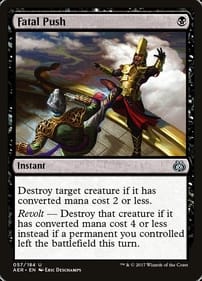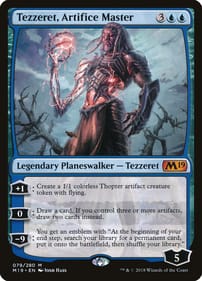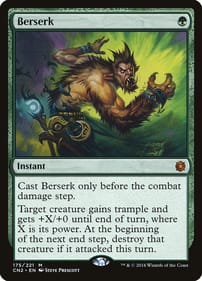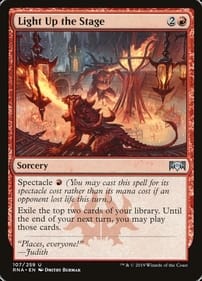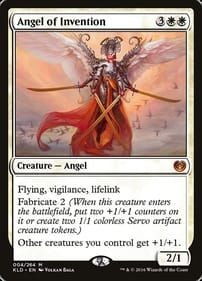Magic: The Gathering (MTG) is a game filled with rich mechanics, and understanding the game’s keywords is key to building strong decks and mastering strategies. These keywords often define how creatures and spells interact with each other, shaping the flow of the game. In this guide, we'll go over some of the most important MTG keywords to help you navigate and enhance your gameplay.
1. Trample
Trample is a keyword ability that allows a creature to deal excess damage to the player it’s attacking, even if it’s blocked. When attacking with a creature that has Trample, you must assign damage to the blocking creatures first. If the blockers are destroyed, any remaining damage can be assigned to the player. If the creature with Trample is blocked but there are no blockers left when damage is dealt (for instance, if you destroy the blocking creature with a spell), all of its damage goes directly to the player. Note that Trample doesn’t affect planeswalkers unless the creature has “Trample over planeswalkers.”
2. Flying
Flying is one of the most well-known abilities in MTG. Creatures with Flying can only be blocked by other creatures with Flying or Reach. This makes them very effective in both offence and defence, as they are difficult to block by most ground-based creatures. Flying creatures can attack without fear of being blocked by low-flying or no-flying creatures.
3. Deathtouch
Deathtouch is an ability that makes any damage from a creature with Deathtouch fatal to another creature. It doesn't matter how much damage is dealt – even a single point of damage from a creature with Deathtouch is enough to destroy the opposing creature. This makes Deathtouch creatures incredibly valuable in combat, as they can easily take down even the toughest of enemies. Deathtouch has no effect on planeswalkers or players.
4. Haste
Haste is an ability found on creatures. A creature that has haste is not affected by summoning sickness. The creature can attack as soon as it comes under your control. It can also activate its activated abilities, including those that require it to tap. Creatures with Haste are especially useful when you cast a spell that brings them into play unexpectedly, such as spells that allow you to cast from the graveyard.
5. Vigilance
Vigilance is a keyword ability that allows a creature to attack without tapping. This means the creature can still be used to block during your opponent’s turn. However, Vigilance doesn’t let a creature that is already tapped or one that just entered the battlefield attack.

6. First Strike and Double Strike
First Strike is a keyword ability that allows creatures to deal their combat damage before creatures without it. When combat damage is assigned, creatures with First Strike (and Double Strike) deal damage in a separate step. After that, the normal combat damage step occurs, where all surviving creatures, including those with Double Strike, deal their damage.
Double Strike is a keyword ability that allows a creature to deal combat damage twice. When combat damage is assigned, creatures with First Strike and Double Strike deal their damage during a special, early combat damage step. Afterward, the regular combat damage step occurs, where any surviving creatures, including those with Double Strike, deal their damage. This means creatures with Double Strike have the chance to deal damage both before and after the normal combat damage step.
7. Reach
Reach is an ability that allows a creature to block creatures with Flying. The creature with Reach can be blocked by any kind of creature. Creatures with Reach can block flying creatures effectively, which helps to counterbalance the advantage that flying creatures typically have in battle.
8. Damage
Damage lowers a player’s life total and can destroy creatures. Creatures that attack or block deal damage based on their power. Certain spells and abilities also have the ability to deal damage. Damage can affect creatures, players, and planeswalkers. When damage is dealt to a player, it reduces their life total. If a creature takes damage equal to or greater than its toughness in one turn, it is destroyed. Any damage dealt beyond a creature’s toughness is considered excess damage. When damage is dealt to a planeswalker, it reduces their loyalty counter.
9. Lifelink
Lifelink is an ability that causes a player to gain life whenever a creature with Lifelink deals damage. This applies to any form of damage – whether combat damage or damage from an ability. Lifelink is highly beneficial because it allows you to regain life as you deal damage, helping to offset the damage you might take during the course of the game. It’s especially potent when combined with high-damage creatures.
10. Goad
A keyword action. When you goad a creature, it must attack during its controller’s next combat, and it must attack a player other than you, if possible. The controller decides which player controls the target creature’s attack, but if all players goad the creature or no other players are valid targets, the goaded creature can attack its controller.
Unlocking the Power of Keywords
Mastering Magic: The Gathering starts with understanding the types of cards, their abilities, and how they shape the game. Keywords like Trample, Flying, and Deathtouch can change how you attack and defend, while Vigilance, Haste, and Lifelink give you more flexibility. First Strike, Double Strike, and Reach can help you win battles, while cards with abilities like “cast from the graveyard” and discard card mechanics create unique strategic opportunities.
Once you get the hang of these keywords, you can start combining them to improve your strategy. Dive into the world of MTG keywords and see how they can take your game to the next level. Explore sets like Saviors of Kamigawa or Mirrodin Besieged to find powerful cards that let you pay an additional cost or put it onto the battlefield from unexpected places. Keep an eye on abilities that allow you to manipulate cards from the top of your deck to gain an edge over your opponents.
Mastering these MTG keywords can elevate your gameplay, and if you need more tips or strategies, reach out to us at Obsidian Games for expert advice and all your Magic: The Gathering needs!


